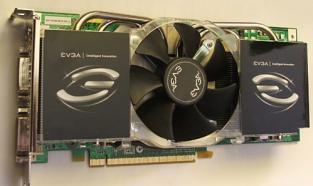OOPS! You forgot to upload swfobject.js ! You must upload this file for your form to work.
Deliveries of processors Ryzen 5 AMD promises to improve the work of the platform
![]()
|
xtreview is your : Video card - cpu - memory - Hard drive - power supply unit source |
|
|||
|
|
||||
 Recommended : Free unlimited image hosting with image editor
Recommended : Free unlimited image hosting with image editor
|
POSTER: computer news || DELIVERIES OF PROCESSORS RYZEN 5 AMD PROMISES TO IMPROVE THE WORK OF THE PLATFORM |
DATE:2017-03-31 |
|
|
Improving the performance of the AMD Ryzen processors in the motherboard with the AM4 socket largely lies with the developers of the company, and not with the motherboard manufacturers. BIOS manufacturers debug BIOS based on the code of AMD Generic Encapsulated Software Architecture (AGESA). The next AGESA development package will be sent (or already sent) to the manufacturers, so that by April 11, when the AMD family of Ryzen 5 processors begin to be delivered, the changes took effect. As the representative of AMD - Rob Hallock (Rob Hallock), in the BIOS will be made four major changes that significantly improve the operation of systems with processors Ryzen. First, the DRAM memory access latency is reduced by about 6 ns, which will increase the system performance in case of work with delay-sensitive applications. Secondly, the problem with suspending the system when running a rare FMA3 code is solved. Thirdly, the "overclock sleep bug" bug was solved, when the clock readings turned out to be incorrect after the system left the S3 sleep mode. The fourth and significant improvement will be the unbundling of the dependency of the Ryzen Master software by AMD to overclock the processors from the Windows High-Precision Event Timer (HPET). Disabling HPET is one way to improve system performance with Ryzen in a simple way. Soon it will become possible. Later in April, the company promises to make a number of improvements available for implementation in the BIOS. For example, to improve the performance of Ryzen running Windows 10 in terms of optimizing consumption. The developers of games and programs, for their part, promise to optimize the code to run on platforms with Ryzen processors. So, AMD Ryzen processors will become better and better every day . | ||
|
|
||
|
xtreview is your : Video card - cpu - memory - Hard drive - power supply unit source |
|
|
|
|
||
|
Xtreview Support  N-Post:xxxx Xtreview Support        |
DELIVERIES OF PROCESSORS RYZEN 5 AMD PROMISES TO IMPROVE THE WORK OF THE PLATFORM |
| Please Feel Free to write any Comment; Thanks  |
The new version of GPU-Z finally kills the belief in the miracle of Vega transformation (2017-09-08)
The motherboard manufacturer confirms the characteristics of the processors Coffee Lake (2017-09-08)
Unofficially about Intels plans to release 300-series chipset (2017-09-08)
The Japanese representation of AMD offered monetary compensation to the first buyers of Ryzen Threadripper (2017-09-08)
TSMC denies the presentation of charges from the antimonopoly authorities (2017-09-08)
Radeon RX Vega 57, 58 and 59: the wonders of transformation (2017-09-07)
ASML starts commercial delivery of EUV-scanners (2017-09-07)
The fate of Toshiba Memory can be solved to the next environment (2017-09-07)
duo GeForce GTX 1080 Ti in GPUPI 1B at frequencies of 2480-10320 MHz (2017-09-07)
Advertising Radeon RX 570 for 279 dollars AMD caused a storm of emotions (2017-09-07)
Twelve-core Core i9-7920X lost the lid in front of the photographic lens (2017-09-06)
China banned the creation of new ICO crypto-currency and ordered to return the money for the created one (2017-09-06)
AMD gave details about the history of the Ryzen Threadripper (2017-09-06)
The six-core processor Intel Coffee Lake lit up at a Chinese auction (2017-09-06)
The characteristics of the mobile chip MediaTek Helio P40 are known (2017-09-06)
By the end of the year Toshiba hopes to release a 14TB hard drive (2017-09-06)
Delivery of virtual reality seats Roto VR will begin in late October (2017-09-05)
Compact systems Intel NUC based on Coffee Lake will be released in the second quarter of 2018 (2017-09-05)
Asustek increases its share in the segment of expensive motherboards (2017-09-05)
AMD processors with Zen architecture of the second generation will raise frequencies and specific performance (2017-09-05)
![]()
To figure out your best laptops .Welcome to XTreview.com. Here u can find a complete computer hardware guide and laptop rating .More than 500 reviews of modern PC to understand the basic architecture


7600gt review
7600gt is the middle card range.
We already benchmarked this video card and found that ...

 geforce 8800gtx and 8800gts
geforce 8800gtx and 8800gts  Xtreview software download Section
Xtreview software download Section  AMD TURION 64 X2 REVIEW
AMD TURION 64 X2 REVIEW  INTEL PENTIUM D 920 , INTEL PENTIUM D 930
INTEL PENTIUM D 920 , INTEL PENTIUM D 930  6800XT REVIEW
6800XT REVIEW  computer hardware REVIEW
computer hardware REVIEW  INTEL CONROE CORE DUO 2 REVIEW VS AMD AM2
INTEL CONROE CORE DUO 2 REVIEW VS AMD AM2  INTEL PENTIUM D 805 INTEL D805
INTEL PENTIUM D 805 INTEL D805  Free desktop wallpaper
Free desktop wallpaper  online fighting game
online fighting game  Xtreview price comparison center
Xtreview price comparison center Lastest 15 Reviews


Rss Feeds
Last News
- The new version of GPU-Z finally kills the belief in the miracle of Vega transformation
- The motherboard manufacturer confirms the characteristics of the processors Coffee Lake
- We are looking for copper coolers on NVIDIA Volta computing accelerators
- Unofficially about Intels plans to release 300-series chipset
- The Japanese representation of AMD offered monetary compensation to the first buyers of Ryzen Threadripper
- This year will not be released more than 45 million motherboards
- TSMC denies the presentation of charges from the antimonopoly authorities
- Radeon RX Vega 64 at frequencies 1802-1000 MHz updated the record GPUPI 1B
- AMD itself would like to believe that mobile processors Ryzen have already been released
- AMD Vega 20 will find application in accelerating computations
- Pre-orders for new iPhone start next week
- Radeon RX Vega 57, 58 and 59: the wonders of transformation
- ASML starts commercial delivery of EUV-scanners
- The older Skylake processors with a free multiplier are removed from production
- Meizu will release Android-smartphone based on Helio P40
- AMD Bristol Ridge processors are also available in American retail
- The fate of Toshiba Memory can be solved to the next environment
- duo GeForce GTX 1080 Ti in GPUPI 1B at frequencies of 2480-10320 MHz
- New Kentsfield overclocking record up to 5204 MHz
- Lenovo released Android-smartphone K8

HALO 3 HALO 3 - Final Fight!

PREY Prey is something you don t often see anymore: a totally unigue shooter experience.

computer news computer parts review Old Forum Downloads New Forum Login Join Articles terms Hardware blog Sitemap Get Freebies


